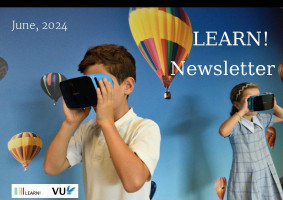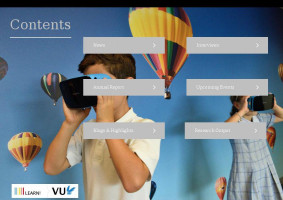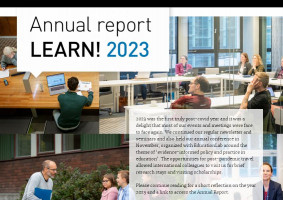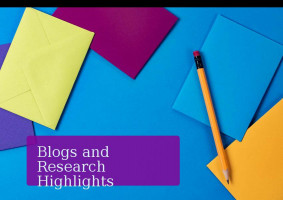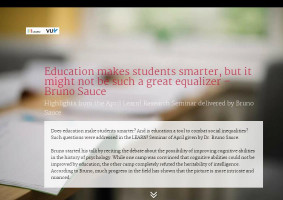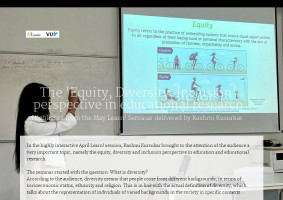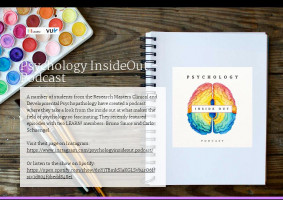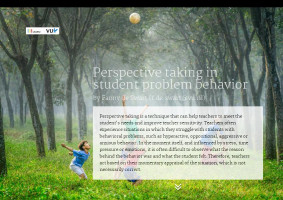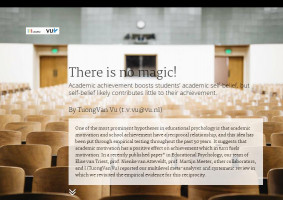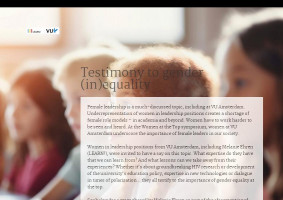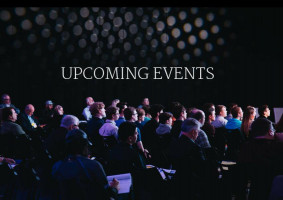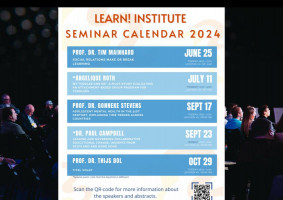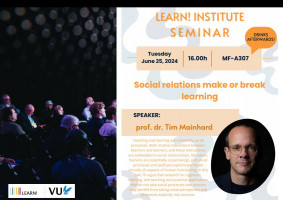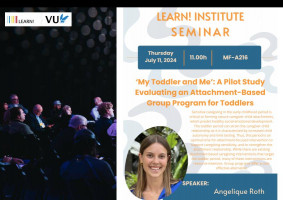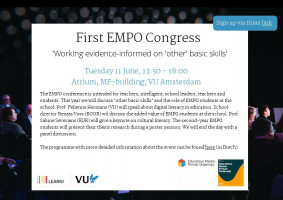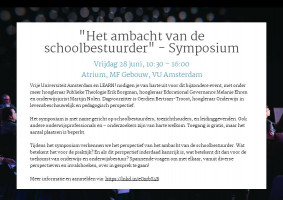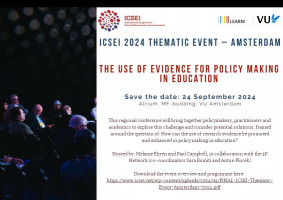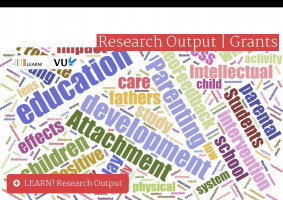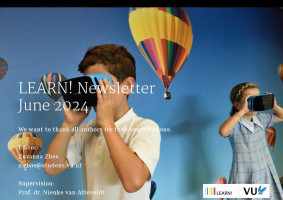Female leadership is a much-discussed topic, including at VU Amsterdam. Underrepresentation of women in leadership positions creates a shortage of female role models – in academia and beyond. Women have to work harder to be seen and heard. At the Women at the Top symposium, women at VU Amsterdam underscore the importance of female leaders in our society.
Women in leadership positions from VU Amsterdam, including Melanie Ehren (LEARN!), were invited to have a say on this topic. What expertise do they have that we can learn from? And what lessons can we take away from their experiences? Whether it’s about groundbreaking HIV research or development of the university’s education policy, expertise in new technologies or dialogue in times of polarisation... they all testify to the importance of gender equality at the top.
See below for a story shared by Melanie Ehren as part of the aforementioned interview series.
(1)_w420_h596_1.jpg)
Can you tell us a little about yourself?
“I’ve always been interested in education. I studied Applied Educational Sciences at the University of Twente and subsequently worked in various policy positions. These included at the Faculty of Medicine at AMC, at Colo (now the Knowledge Centre for Vocational Education and Business) and at the Rotterdam University of Applied Sciences.
I’ve been involved in educational supervision in all these positions. Through supervision, the education inspectorate checks whether education meets predetermined standards and expectations, so that students and pupils receive the best possible learning experience.
When a vacancy came up at the University of Twente for a PhD position on the effects of educational supervision, it was a unique opportunity for me, as a scientist, to examine the question of whether educational supervision also contributes to the functioning of schools and educational institutions as well as the learning of children and young adults.
“What I find both fun and fascinating about researching educational supervision is that you need multiple disciplines within it. Psychology, because you’re investigating the relationships between supervisors and school management. Public administration, because you need to know how supervision fits within our democratic system. And sociology, because you need to understand how supervision influences the education system and how supervision guidelines have a normative effect on the content of education and the development of organisations. In short, it comes down to understanding human relationships, politics and the way our education system works.”
What’s your research about?
“The effect of educational supervision on schools and school improvement has always been an important theme in my work. I’m currently conducting research into how supervision and external quality standards influence the work of teachers, and how they interpret these standards in six countries: South Africa, Honduras, India, Pakistan, Afghanistan and Nepal. In collaboration with a team of researchers, we try to understand why some teachers strictly follow the rules of how to teach, while others adapt these rules to the needs and abilities of their students. We see that the school management plays a major role in this, but also the parents of students, the time, resources and knowledge available at schools, and the professional background and views of the teachers about their own profession.”
How could you inspire other young female scientists with your story and your career so far?
“I’m very happy with the variety of positions I’ve held so far, and more especially with the valuable experiences I’ve had abroad. Through these experiences, I’ve gained many ideas for my own education and how we can properly train students to become critical and well-informed thinkers. This also helped me build my network, which I still benefit from today.
“I hope that all young scientists, not just women, are able to take those opportunities too. Leave your comfort zone – that’s where you’ll discover what you can do and how to move forward.”
What advice would you give yourself if you were 18 years old?
“Sometimes you miss opportunities or take a wrong turn, but that’s part of life and in the end you have to make the best of it. Every phase of life comes with different wishes and expectations about what interests you and what you find important. It’s nice to be able to grant space to those things.”
